Delving into the General Confession of the AME Church, this comprehensive guide unveils the profound significance of this sacred practice. Rooted in a rich theological understanding of sin, grace, and forgiveness, the General Confession serves as a transformative ritual that fosters spiritual growth and reconciliation within the AME community.
Through a systematic examination of its structure, components, ritual practices, and theological implications, this guide provides a comprehensive overview of the General Confession’s role in the AME Church’s spiritual life.
Definition and Overview
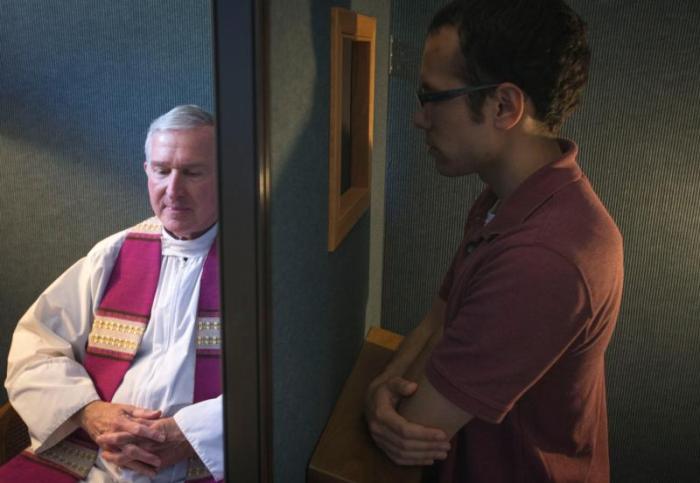
A general confession is a form of communal repentance and forgiveness practiced within the African Methodist Episcopal (AME) Church.
Historically, general confessions were a central part of the AME Church’s worship services, providing a structured opportunity for congregants to acknowledge their sins and seek forgiveness from God and one another.
Historical Context
The practice of general confession in the AME Church can be traced back to the early 19th century, when the church was founded by Richard Allen and other former slaves.
At that time, African Americans were often denied access to traditional Christian churches, and they established their own independent denominations. The AME Church’s emphasis on general confession reflected its commitment to creating a welcoming and inclusive community where all members could feel forgiven and accepted.
Structure and Components
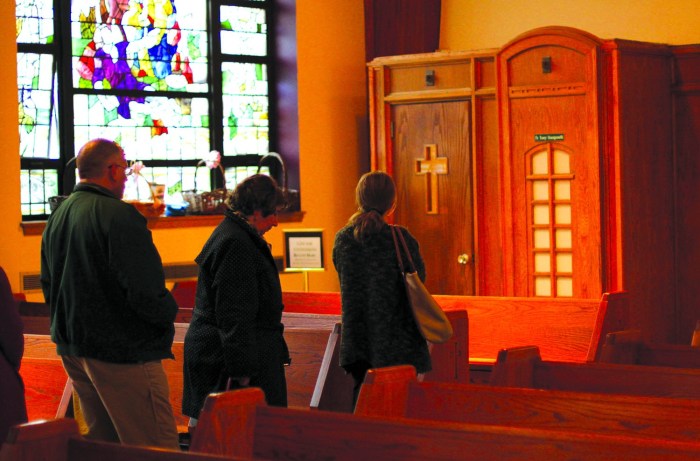
The general confession in the AME Church follows a standardized structure that comprises several key components.
The confession begins with an acknowledgment of sins, where individuals confess their transgressions and shortcomings to God. This is followed by an expression of repentance, in which individuals express their sorrow and regret for their sins, seeking forgiveness and reconciliation with God.
Absolution
The final component of the general confession is absolution, which is pronounced by the minister or pastor. Absolution is a declaration of forgiveness and reconciliation, granted by God through the minister’s authority. It serves as a reassurance that sins have been forgiven and individuals are restored to a right relationship with God.
Ritual and Practice: General Confession Of The Ame Church
A general confession is a liturgical practice within the African Methodist Episcopal Church (AME Church) that allows members to collectively acknowledge their sins and seek forgiveness from God.
The ritual is typically conducted during worship services, led by the pastor. The pastor begins by inviting the congregation to participate in a time of self-examination and reflection on their actions and thoughts.
Role of the Pastor
The pastor guides the congregation through a series of prayers and readings that focus on themes of repentance, forgiveness, and reconciliation. They may also offer a sermon or exhortation to encourage the congregation to turn away from sin and towards God.
Role of the Congregation
The congregation actively participates in the general confession by responding to the pastor’s prayers and readings. They may also offer their own prayers of confession and repentance.
The ritual concludes with a prayer of absolution, pronounced by the pastor, which offers forgiveness to the congregation for their sins.
Theological Significance
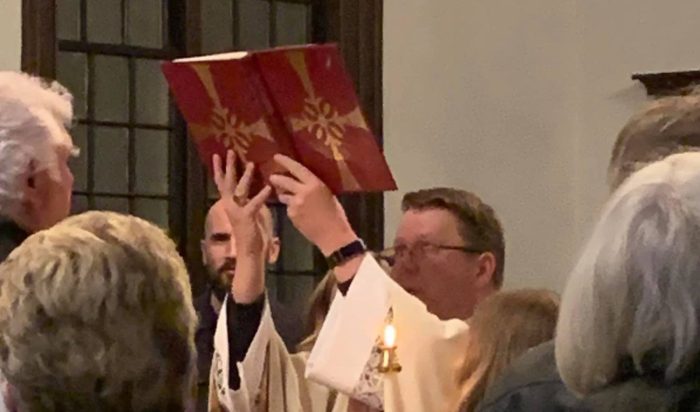
The general confession holds profound theological significance within the AME Church. It serves as a collective acknowledgment of sin and a plea for God’s grace and forgiveness.
The AME Church’s understanding of sin is rooted in the belief that all humans are inherently sinful. Sin is a departure from God’s will and a violation of His commandments. Through the general confession, the congregation recognizes its complicity in sin and acknowledges the need for God’s mercy.
Role of Grace and Forgiveness
The general confession plays a pivotal role in the AME Church’s understanding of grace and forgiveness. Grace is God’s unmerited favor and love extended to sinners. Through the confession, the congregation expresses its faith in God’s grace and seeks His forgiveness for its transgressions.
Forgiveness is God’s act of pardoning sin and restoring the sinner to a right relationship with Him. The general confession serves as a reminder that forgiveness is not automatic but must be sought through repentance and faith.
Examples and Variations

General confessions used in the AME Church vary in language and content across different congregations. However, they typically share a common structure and theological themes.
Language and Content Variations
The language used in general confessions can vary depending on the congregation’s theological orientation and cultural context. Some congregations may use more traditional language, while others may use more contemporary language. The content of general confessions can also vary, with some congregations emphasizing particular sins or themes.
Impact and Outcomes
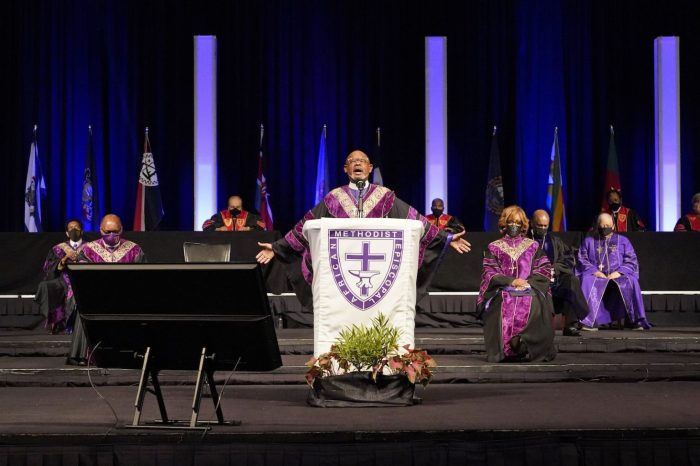
A general confession has a profound impact on both individuals and the congregation. It facilitates spiritual growth and reconciliation, strengthening the bond between individuals and the community.
For individuals, the act of confessing sins openly acknowledges personal accountability and the need for forgiveness. It allows individuals to confront their shortcomings, seek absolution, and strive for a renewed sense of spiritual purity.
Fostering Spiritual Growth
- Promotes self-reflection and introspection, encouraging individuals to examine their actions and motivations.
- Provides an opportunity for repentance and reconciliation with God, fostering a deeper sense of humility and spiritual connection.
- Creates a safe and supportive environment where individuals can share their burdens and receive guidance from the community.
Promoting Reconciliation
- Strengthens the bonds within the congregation by fostering a sense of shared vulnerability and compassion.
- Promotes forgiveness and reconciliation among individuals, fostering a spirit of unity and healing.
- Creates a sense of accountability and responsibility within the community, encouraging members to support and uplift one another.
Modern Adaptations
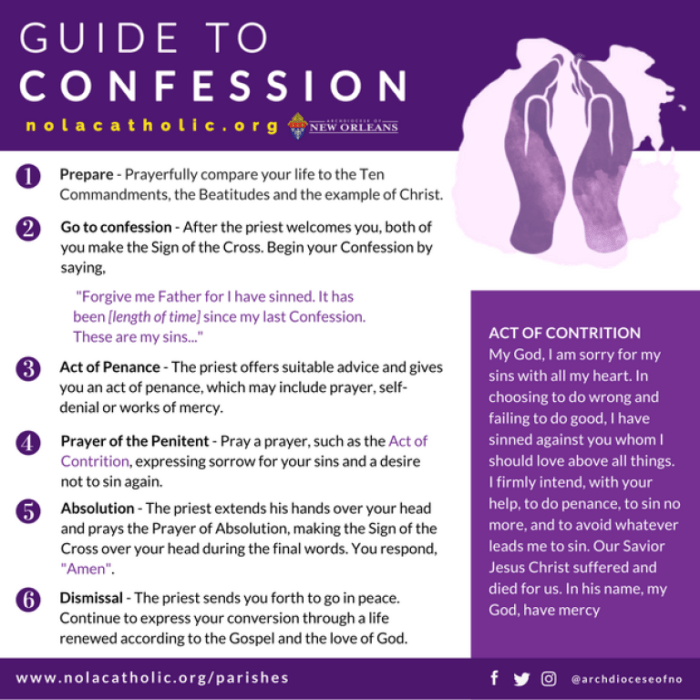
General confessions have adapted to contemporary contexts in various ways, reflecting the evolving needs and preferences of the faithful. These adaptations include the use of technology and other modern approaches to enhance the accessibility, inclusivity, and convenience of the sacrament.
One significant adaptation is the use of online confession platforms. These platforms allow individuals to confess their sins virtually, connecting with a priest or minister through video or text-based interfaces. This approach provides greater convenience and flexibility, particularly for those who may have difficulty attending traditional in-person confessions due to factors such as distance, physical limitations, or busy schedules.
Technology and Modern Approaches, General confession of the ame church
- Online confession platforms offer virtual connections with priests or ministers for remote confessions.
- Mobile applications provide convenient access to confession resources, including prayer guides and examination of conscience.
- Social media platforms are utilized for sharing reflections and seeking spiritual support related to confession.
Clarifying Questions
What is the purpose of the General Confession in the AME Church?
The General Confession serves as a communal act of repentance and forgiveness, acknowledging the presence of sin and seeking God’s grace and reconciliation.
How is the General Confession typically conducted?
Led by the pastor, the General Confession involves a structured liturgy of prayers, readings, and responses by the congregation, culminating in a collective declaration of faith and absolution.
What is the theological significance of the General Confession?
The General Confession reflects the AME Church’s understanding of sin as a communal reality, emphasizing the need for collective repentance and the transformative power of God’s forgiveness.